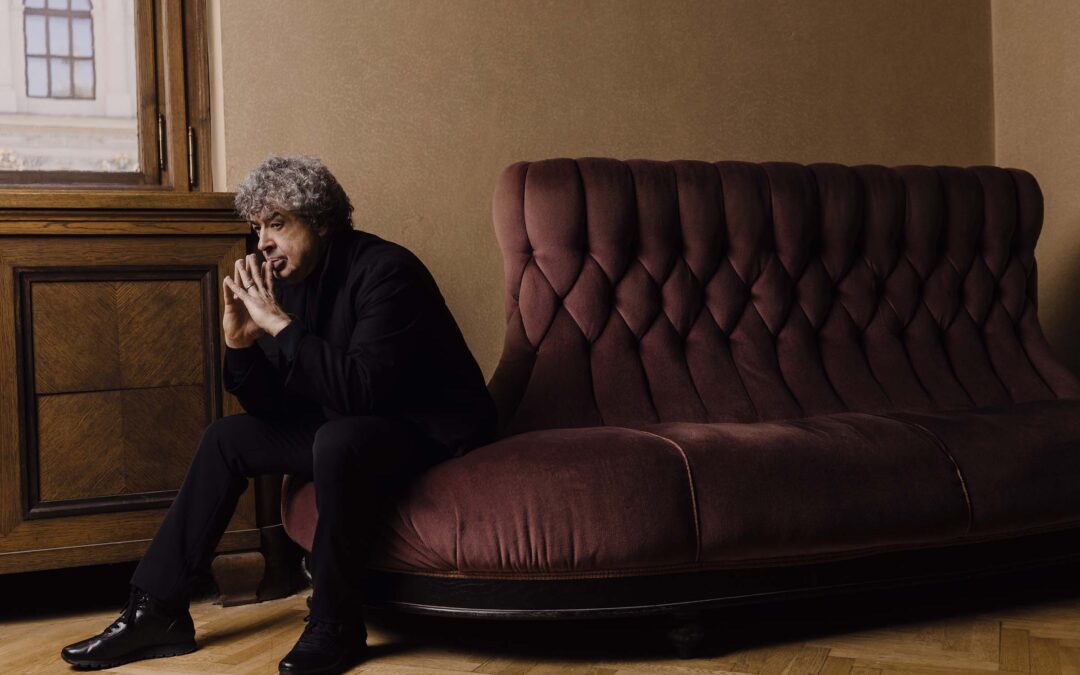Excerpt from David Conway’s interview with Semyon Bychkov in The Critic.
Semyon Bychkov, a Russian-born and internationally famed conductor, and familiar figure in London opera houses and concert halls, recently made a forceful intervention, releasing a statement condemning Putin’s invasion of Ukraine and “silence in the face of evil”. Now Chief Conductor and Music Director of the Czech Philharmonic, he started his career as a refugee and dissident, fleeing the Soviet Union whilst still a young man, and became a lifelong opponent of Soviet totalitarianism, and has continued to attack the current regime in Russia for its refusal to confront this legacy. Ahead of the Czech Philharmonic’s forthcoming tour in England, David Conway spoke to Mr Bychkov on behalf of the Critic about his statement, his exile from Russia, and the relationship between music, nationality and the human spirit.
DC: Maestro Bychkov, we look forward greatly to your two London concerts with the Czech Philharmonic Orchestra in London on 15 and 16 March. Three of the works you are playing speak very strongly about Czech identity, and now we in Western Europe have again to confront the value of such identity in the wake of Russia’s assault on Ukraine.
SB: Music certainly reflects national identity because music reflects life. If we think of the people that created the music we will be playing, the home country of Dvořak and Smetana was a part of the Austrian Empire, and there was already a strong feeling among Czech people that they wanted to preserve their culture, their identity, they wanted to be truly independent. One certainly hears that in the music of Ma Vlast and of Dvořak’s Eighth Symphony — and then one hears it transformed in Janaček’s Glagolitic Mass. Neither Smetana nor Dvořak lived to see their country’s independence in 1918, but Janaček did, and the Glagolitic Mass came 8 years after.
DC: I was very moved when I heard the wonderful concert you gave with the Czech Philharmonic three weeks ago in Prague. This was in a way an essay of how music reveals truth after time, including music by two composers sidelined or murdered by authoritarian regimes, (Miloslav Kabeláč and Viktor Ullmann) and ending with Brahms’s First Symphony which looks to the future but is rooted in Beethoven.
SB: In the case of Kabeláč, this is a man who was a contemporary of Shostakovich. He lived through the period of Nazism, but then his country was kidnapped by the Soviet Union in the division of Europe which took place when Germany was defeated. Kabeláč’s style was one the authorities didn’t want to hear so eventually he became banned. The orchestral passacaglia Mystery of Time which we performed in Prague, was completed in 1957, after the uprising in Budapest and Hungary in 1956, suppressed by the Soviet Army.
As long as you do not atone, evil will keep repeating itself
Listening to this work I am convinced that Kabeláč must have known every note of the music of Shostakovich and there’s definitely a connection, even though I don’t believe that they ever met. So this shows you that such artists, as they create, are experiencing and reflecting the times they are living through. And such transformation is not unique to their individual countries — it becomes universal when it is at such a colossal level of creativity.
